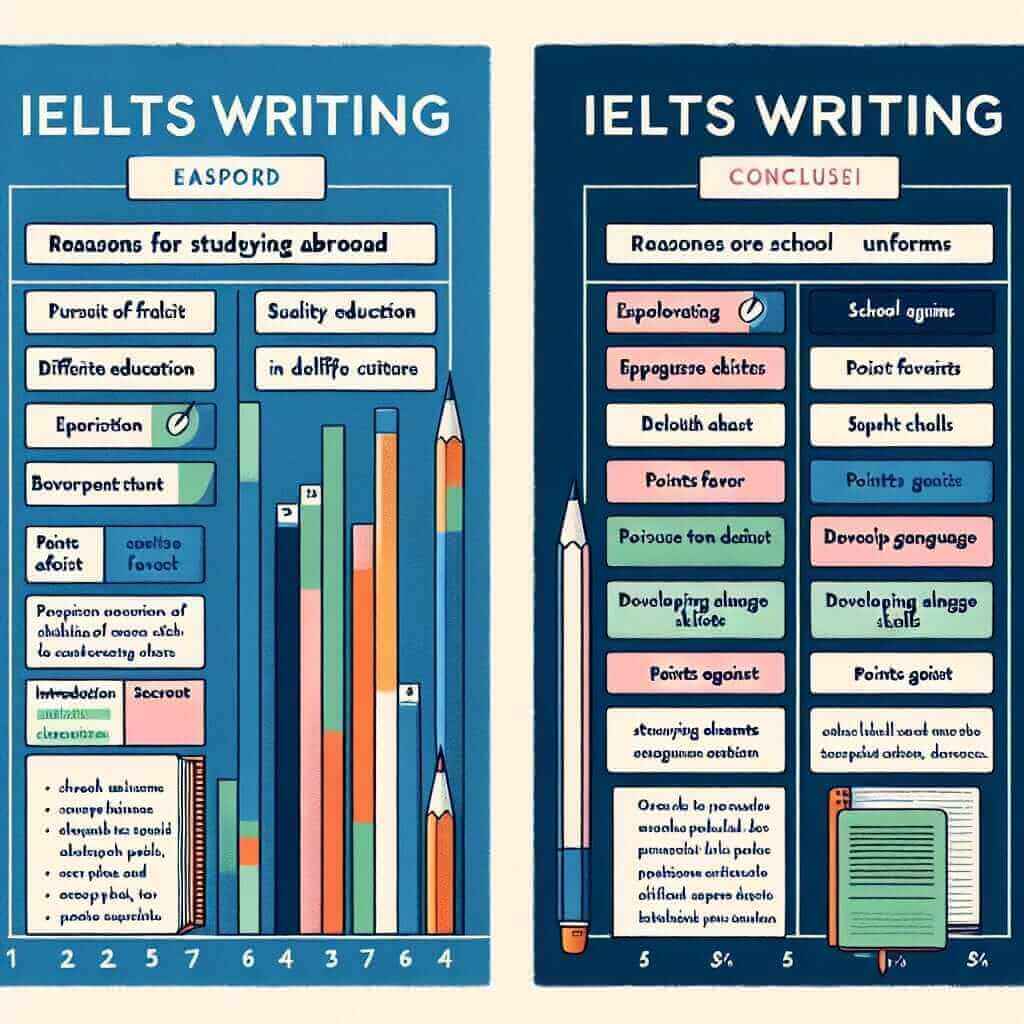Preparing for the IELTS exam in just two days may seem like an overwhelming task, but with a strategic approach and intense focus, you can maximize your chances of performing well. In this guide, we’ll explore how you can effectively prepare for the IELTS exam in just 48 hours. Remember, these tips are designed to help you make the most out of your limited time, but they cannot replace a detailed and thorough preparation plan spread over several weeks or months.
Understanding the Key Areas of the IELTS Exam
The IELTS exam comprises four main sections: Listening, Reading, Writing, and Speaking. Each section evaluates different language skills and requires specific preparation approaches. Let’s break down the key tasks you need to focus on for each section.
Listening
The listening section tests your ability to understand spoken English in various contexts.
Key Tips for Listening:
-
Familiarize with the Format:
- The Listening test consists of four recordings, each serving a different purpose. Make sure you understand the type of questions asked in each section.
-
Practice Active Listening:
- Listen to English podcasts, news, and conversations. Focus on understanding the main ideas and specific information.
-
Take Practice Tests:
- Use official IELTS practice materials to simulate the test environment (e.g., Cambridge IELTS practice tests).
-
Improve Note-Taking:
- Develop a note-taking technique that helps you capture key points quickly and accurately.
Example:
Listen to a conversation and take notes on who is speaking, what they are talking about, and any specific details such as dates, names, or numbers.
Reading
The reading section assesses your ability to understand written English texts.
Key Tips for Reading:
-
Understand the Question Types:
- Get familiar with different types of questions, such as multiple-choice, true/false/not given, and matching headings.
-
Skim and Scan:
- Practice skimming the text for the main idea and scanning for specific information.
-
Practice Under Timed Conditions:
- Time yourself while practicing reading passages to improve your speed and accuracy.
Example:
Read a passage and practice identifying the main idea of each paragraph and finding specific information to answer the questions.
Writing
The writing section evaluates your ability to write essays and reports clearly and concisely.
Key Tips for Writing:
-
Understand the Task Types:
- Be familiar with Task 1 (describing a graph, table, chart, or diagram) and Task 2 (essay writing).
-
Practice Planning:
- Spend about 5 minutes planning your response for each task. Outline your main points and how you will support them.
-
Focus on Clarity and Coherence:
- Ensure your writing is clear, logically organized, and supported with examples.
Example:
Task 1: Describe the main trends in a given chart.
Task 2: Write an essay on whether schools should enforce uniform policies.

Speaking
The speaking section tests your ability to communicate effectively in spoken English.
Key Tips for Speaking:
-
Familiarize with the Format:
- The Speaking test has three parts: an introduction and interview, a long turn, and a discussion.
-
Practice Speaking:
- Find a speaking partner or practice answering common IELTS speaking questions.
-
Develop Fluency:
- Focus on speaking fluently and coherently without unnecessary pauses.
Example:
Part 2: Talk about a book you have read recently. Explain why you liked or disliked it.
Common Mistakes and How to Avoid Them
Common Mistakes in IELTS Preparation:
-
Neglecting Time Management:
- Practice managing your time to ensure you can complete all sections within the allotted time.
-
Overlooking Vocabulary:
- Build a strong vocabulary and practice using it in context rather than memorizing isolated words.
-
Ignoring Instructions:
- Always read and follow the instructions carefully for each section.
Example Mistake:
Not reading instructions clearly in the Reading section and missing out on important details which can lead to incorrect answers.
Effective Practice Techniques
Practice Techniques:
-
Take Full-Length Practice Tests:
- Simulate test conditions by taking full-length tests.
-
Review and Analyze:
- Review your answers and identify areas for improvement.
-
Seek Feedback:
- If possible, get feedback from a teacher or an experienced IELTS tutor.
Example:
After taking a practice test, go through each incorrect answer to understand why you got it wrong and how to avoid similar mistakes in the future.
Conclusion
Preparing for the IELTS exam in two days is undoubtedly challenging, but by focusing on key areas and practicing efficiently, you can make significant improvements. Remember to stay calm, manage your time effectively, and believe in your abilities. For more tips and resources, explore our website and connect with others on the same journey.
Feel free to leave comments or share your own tips for last-minute IELTS preparation. Good luck with your exam!